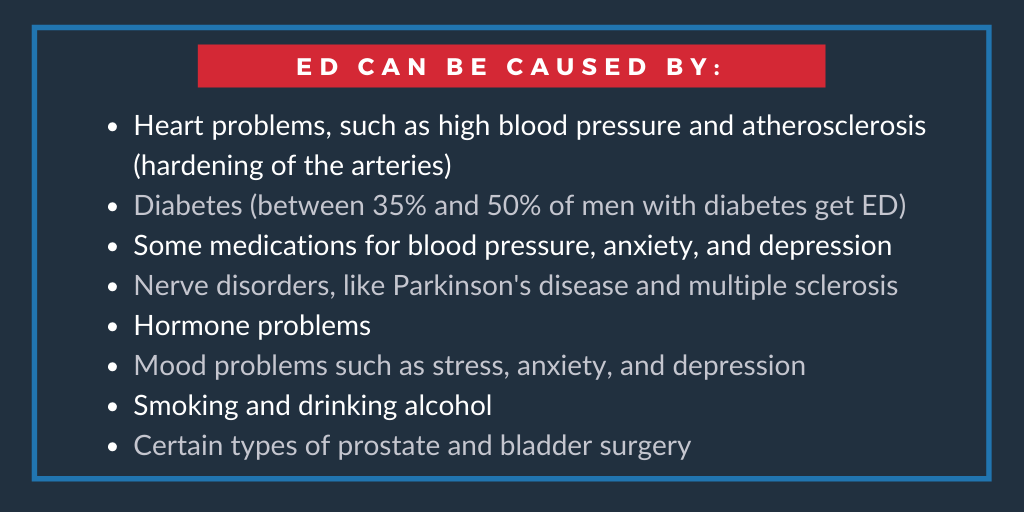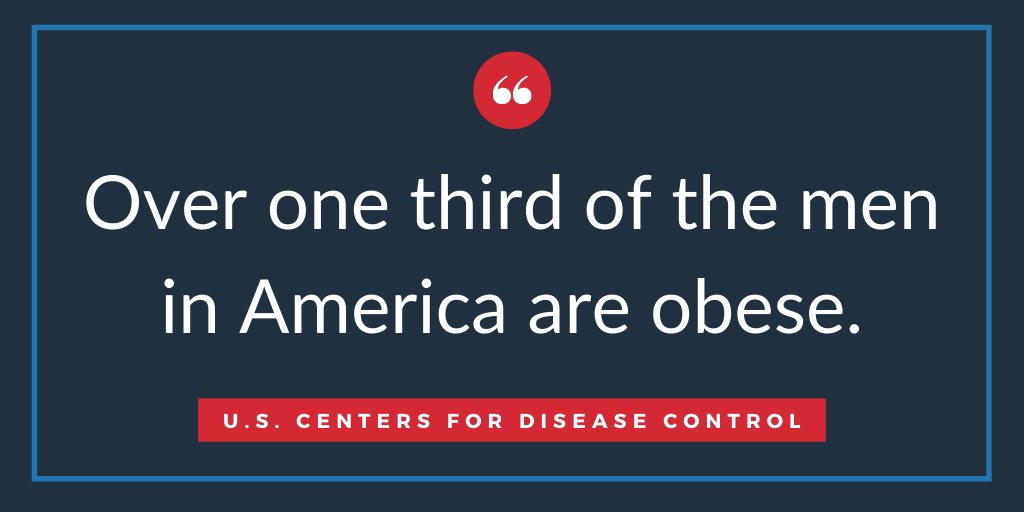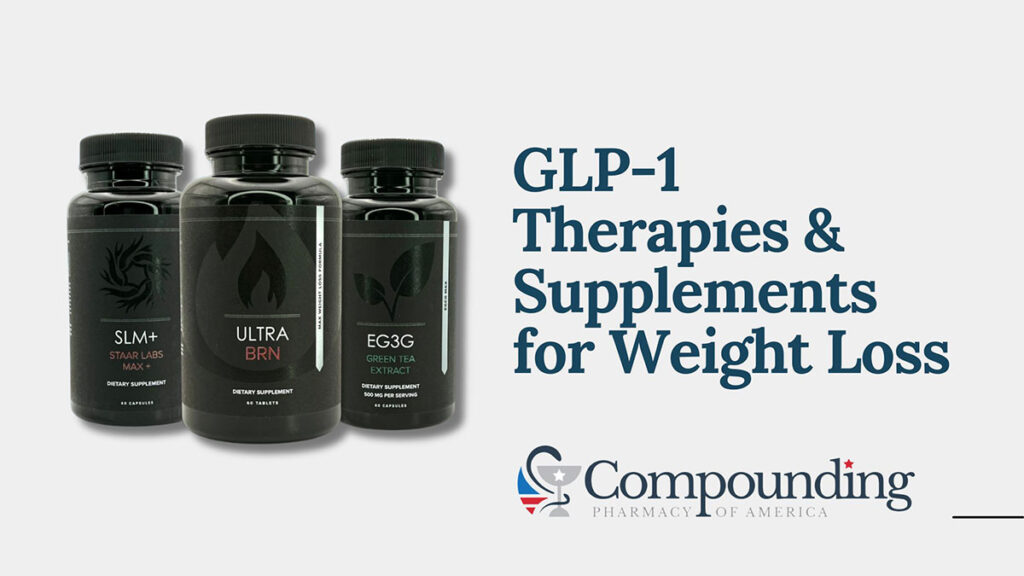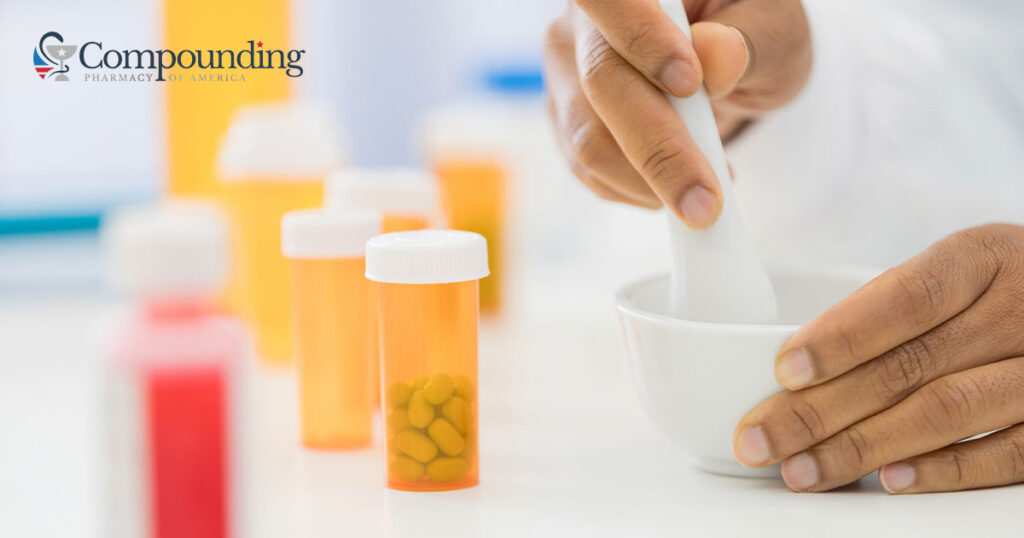
Men’s Health and Preventive Care
When you hear the term “men’s health,” what immediately comes to mind? Most of us think of things that affect men as they age, such as prostate issues and hypogonadism. However, there are many unique health threats that can affect men, no matter their age. The key to maximizing quality of life quality and mitigating risk as get older is to be proactive with a preventive health schedule and to seek medical attention early if you suspect a problem.
Waiting to see a doctor when a problem arises could mean missing early signs of an underlying health issue. For example, erectile dysfunction, or ED, is a common condition that brings men in to see their doctors. At the same time, this can be a symptom of a more serious health condition, like heart disease, diabetes, and blood pressure problems.

ED can be caused by:
- Heart problems, such as high blood pressure and atherosclerosis (hardening of the arteries)
- Diabetes (between 35% and 50% of men with diabetes get ED)
- Some medications for blood pressure, anxiety, and depression
- Nerve disorders, like Parkinson’s disease and multiple sclerosis
- Hormone problems
- Mood problems such as stress, anxiety, and depression
- Smoking and drinking alcohol
- Certain types of prostate and bladder surgery
It is imperative to stay on top of your health with regular screening and recommended preventive care. Organizations like the US Preventive Services Task Force, American Cancer Society, and Advisory Committee on Immunization Practices help set guidelines and recommendations for preventive wellness in men. For example:
- Men aged 18-40 should have a comprehensive physical examination with their primary care provider at least once a year, though frequency will depend on your personal health history and risk factors. An examination should include risk factor review (smoking and alcohol use, physical activity, eating habits), screening tests (blood pressure, cholesterol, blood tests, and STI tests as needed). Recommended immunizations may include a Tdap booster in addition to others recommended by your provider based on travel history and other factors.
- Men aged 40-50 will undergo the same screenings as the 18-40 age group but may require additional screenings and tests for diabetes and heart conditions (ECG) based on personal risk factors. A Tdap booster is recommended.
- Men aged 50-65 will undergo the same screening as above, in addition to colonoscopies every 10 years (or more often based on personal risk factors). A Tdap booster and annual flu shot are recommended.
- Men over the age of 65 will have the same screenings as listed above but should receive more immunizations, namely those for pneumonia and herpes zoster (shingles).
The Top Threats to Men’s Health
The Centers for Disease Control and Prevention outlines the leading causes of death in both men and women. Their 2017 data state that the leading three causes of death in men are:
- Heart disease
- Cancer
- Accidents (unintentional injuries)
In many ways, the leading causes of death in men are preventable – or at the very least, men can take actionable steps to mitigate the risks of these conditions. For example, the CDC reports over a third of men in the United States are obese and a third of men over the age of 20 have hypertension.

Fortunately, simple lifestyle modifications can help you mitigate risk and enhance your health. For example, to maximize your health:
- Avoid tobacco products, including vaping pens and e-cigarette products. If you do use tobacco products, ask your doctor for help quitting. Avoid any exposure to secondhand smoke and live in a smoke-free home.
- Consume a healthy and well-balanced diet. Fruits, vegetables, whole grains, and foods high in fiber help promote overall health. Choose lean sources of protein, such as fish and legumes. Reduce your consumption of foods that are high in saturated fat, sodium, and sugar.
- Keep a healthy weight. Talk to your doctor about your optimal weight range and resolve to maintain it. Keeping off extra weight is one of the best ways to reduce your risk of cancer and heart disease.
- Exercise. Physical activity has so many benefits – it lowers your LDL (bad) cholesterol, raises your HDL (good) cholesterol, helps control weight, manage stress, gives you energy, and more.
- Limit your alcohol consumption. Men under the age of 65 should limit themselves to two drinks per day to mitigate the risk of cancer and liver damage.
- Control stress. If you are constantly feeling “on edge,” take steps to reduce your stress, which can affect your immune system. Meditation and physical exercise can be beneficial.
- Manage risky behavior. Accidents are one of the leading causes of death in men and arise from behaviors that are considered aggressive or competitive (i.e. driving too fast).
Men’s Sexual Health
It’s no secret that a man’s sexual health is of utmost important. When a man has good sexual health, he can enjoy and participate in sexual activity without issue.
Sexual desire is in part driven by testosterone but is also a combination of physical, psychological, and social/interpersonal factors.
A sexually transmitted infection, for example, can affect a man’s sexual and overall health. You can maximize your sexual health risks by using condoms, knowing your partner’s sexual history, and receiving recommended vaccinations for HPV in addition to receiving screenings for HIV.
Sexual Enhancement Drugs
The sexual enhancement drug market is worth billions of dollars, with the top three – Cialis, Viagra, and Levitra – netting over $4.3 billion in revenue alone in 2014. Several other non- FDA approved herbal supplements, like Enzyte and Extenze, have generated hundreds more million in revenue.
While some of these medications can help men, the pills given at most pharmacies can be problematic for a variety of reasons. If your doctor has prescribed a sexual enhancement medication, a compounding pharmacy can create it in a way that is specific to your needs and sensitivities. Be sure to discuss any supplements for sexual enhancements with your doctor; just because a label says it is all natural that doesn’t mean it’s completely safe.
Erectile Dysfunction
Erectile dysfunction, or ED, is characterized by an inability to sustain or produce an erection for the enjoyment of sexual activity. While age is the most common factor contributing to ED – it most commonly affects those over the age of 40 – other risk factors include depression, stress, hypogonadism (low testosterone), and heart disease. Often, ED is a symptom of an underlying medical condition, not a condition in and of itself. If you’re suffering from ED, your first step is to talk with your doctor in the event that it’s something more serious.
Fertility
The ability to produce healthy sperm is an important aspect of reproduction and men’s sexual health. Certain supplements and drugs can affect fertility in men, most often by disturbing the testosterone production process. Men who wish to have sex but do not want to have children should use contraceptives like condoms, or a more permanent solution like a vasectomy.
Condoms
Condoms can help protect against unwanted pregnancy and STIs but it’s important to understand that they have a 10-16% fail rate. In other words, two people using condoms only during sexual activity still have up to a 16% chance of getting pregnant or becoming exposed to an STI within one year.
Vasectomies
Vasectomies, or sterilization, are much more effective for pregnancy prevention, with a fail rate of less than one percent. They do, however, require surgery. During the procedure, a urologist will close the path between the testes and urethra, so the sperm cannot leave the testes. Vasectomies are considered fully effective for about three months after the surgery and are reversible 95% of the time. Vasectomies are for men in a committed relationship who do not want children as the reversal can be quite difficult.
Tips for Men to Protect Your Health
Men can take several steps to protect their health and well-being. In general:
- Exercise moderation in eating and consumption of alcohol
- Stay fit to mitigate risk of diabetes and hypertension
- Wear your seat belt every time you get into a car
- Wear a helmet when on a bicycle or motorcycle
- Keep your vaccinations up to date
- Stick to your recommended preventive healthcare and maintenance schedule
- Wear sunscreen to reduce the risk of skin cancer
- Check yourself mentally before participating in any risky behavior.

Treatments and Medications for Common Men’s Health Issues
Men’s health medications are a multi-billion-dollar industry, especially when considering the herbal supplement and homeopathic industry in addition to FDA-approved medication. According to a study from the IMS Health Institute, a few of the most prescribed medications (among both men and women) in the United States in 2011 included:
- Hydrocodone (with acetaminophen), at 131.2 million prescriptions. This is a powerful opioid pain reliever with a high risk of abuse and dependence.
- Simvastatin, a cholesterol controlling drug, at 93.1.
- Synthroid, a synthetic thyroid hormone to address hypothyroidism, at 70.5 million prescriptions.
- Metformin, at 48.3 million prescriptions, which is used to treat insulin resistance (diabetes).
In addition, arguably one of the most famous men’s health medications – Viagra – posted over $2 billion in sales in 2017. With Pfizer’s patent set to expire in 2020, the ED industry will only likely increase as other companies look to get generic formulations to the market.
Some of the most commonly prescribed prescriptions vary from those that make the most money. A 2015 study from IMS Health found that some of the highest grossing medications in the United States included:
- Humira (adalimumab), which is prescribed to treat a variety of autoimmune disorders such as rheumatoid arthritis, Crohn’s Disease, and psoriatic arthritis.
- Abilify (aripiprazole), a medication used to treat depression, schizophrenia, bipolar disorder, and some of the symptoms associated with autism spectrum disorder (ASD).
- Sovaldi Sofosbuvir), used to treat Hepatitis C infection in combination with other antivirals.
Compounding Services for Men’s Health Conditions
Men, in general, are more likely to die of conditions related to risky behavior than women. They are far more likely to sustain a traumatic brain injury and die in car and motorcycle accidents. At the same time, they are also prone to diseases such as diabetes, high blood pressure, cardiovascular disease, and other conditions requiring specialized medication.
For men, optimization of health is a complex interaction of physical, emotional, social, environmental, and interpersonal factors. Each individual’s risk factors and solutions will be unique. For example, some of the most commonly prescribed medications for men include:
- Urology medications/ medicine for prostate health
- Testosterone replacement therapy (TRT)
- Medication addressing hormone imbalance
- Medicine to address chronic pain resulting from any number of medical conditions, such as arthritis, diabetes, and autoimmune disorders
Unfortunately, many of the conventionally available medications for common medical conditions are ineffective, especially over sustained periods. For example:
- Systemic pain medications are often contraindicated for long term use, as they can lead to dependence or organ toxicity.
- Conventionally dispensed or over the counter medications are designed to work for the masses, not the individual. In cases where personal health history or risk factors make taking first line medication unwise, compounding can be a viable alternative.
- Some forms of synthetic hormone replacement therapy add compounds to the chemical structure that allows companies to patent the end result. This does not improve the efficacy or delivery mechanism, but it does allow the patenting company to make more money from it. Bio-Identical Hormone Replacement Therapy, by contrast, uses your body’s own unique pathways to deliver naturally occurring hormones to you.
As such, it is essential for health-conscious men to be just as proactive when working with pharmacies for their medical needs. Men naturally produce less testosterone as they age and may require hormone therapy for medicine to improve prostate health, even when living a healthy lifestyle. It is important to discuss all health changes and concerns with your doctor as soon as they arise. Follow a preventive maintenance schedule and know when one medical condition – such as ED – may actually be a symptom of an underlying health issue.

Compounding Medications from our Trusted Pharmacists
If you do find yourself in need of a prescription to improve your sexual health, reduce pain, or improve your quality of life, consider compounding medication. Compounding Pharmacy of America can design custom doses and formulations that help you live your best life. We work directly with your prescribing physician to create medications that work for you.
We’ve been helping men with their health conditions for decades now. Contact us to learn more about our men’s health compounding services.








 Health and Wellness Education and News
Health and Wellness Education and News


 Subscribe to Our Newsletter
Subscribe to Our Newsletter


